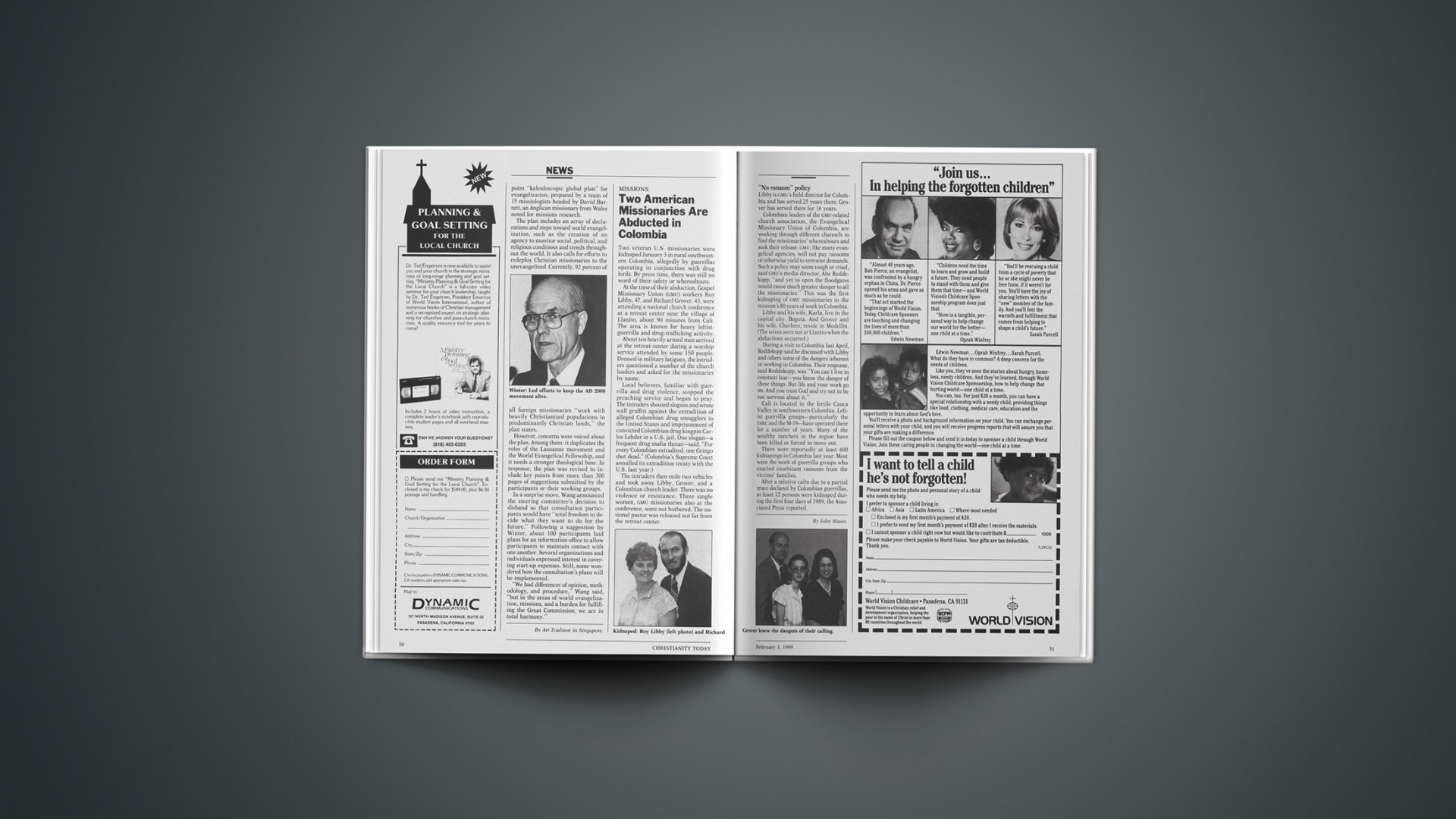A recent rash of student religious-rights cases has some church/state attorneys questioning whether religious freedom is being forced to take a back seat to the separation of church and state in the public school. In three separate cases, attorneys are charging that school administrations are either hostile to—or confused about—the religious rights individuals have in public settings.
Ban On Bible Reading
In Omaha, Nebraska, ten-year-old James Gierke is suing his fifth-grade teacher and his principal for preventing him from reading the Bible in school. The Virginia Beach-based National Legal Foundation (NLF) has filed suit against the Spring Lake Elementary School in U.S. District Court on James’s behalf.
According to Gierke’s complaint, when his teacher, Leslie Halbleib, instructed the children to read books after they finished their schoolwork, Gierke chose to read his Bible silently. Halbleib then told him he must store his Bible in his locker because reading the Bible in school was against the law. Both Halbleib and the school principal denied the boy’s further requests to retrieve his Bible, NFL executive director Robert Skolrood calls for an “awareness of student rights so that constitutional misinterpretation … doesn’t spread.”
A similar “Bible censorship case” involves a Denver, Colorado, principal who removed two religious books and a Bible from two libraries, saying they were a violation of the separation of church and state. Berkeley Gardens Elementary School principal Kathleen Madigan ordered fifth-grade teacher Kenneth Roberts to remove The Bible in Pictures and The Story of Jesus from his 230-volume classroom library, a collection of optional books for the class’s 15-minute silent reading period. No books about other religions were similarly censored. Roberts was also ordered to hide the Bible he keeps on his desk and refrain from reading it during the silent reading period. In addition, Madigan is accused of removing the Bible from the school library.
With legal support from Concerned Women for America (CWA), Roberts filed suit against the school district seeking a permanent injunction to return the censored books to the school libraries. According to CWA attorney Jordan Lorence, the court issued an injunction for the school district to return the Bible to the school library, but it also upheld the removal of the two books in Roberts’s classroom library. The court also denied Roberts permission to read his Bible in his classroom during instructional time, CWA attorneys intend to appeal this decision.
Unequal Access?
In a third case, the Buffalo, New York, School District has gone to court over three high school students who sought permission to hold a Bible study after school while other student groups meet The three met in an empty classroom at McKinley High School for Bible study in the fall of 1987. At first the school district allowed the meetings, but in February 1988, it determined that the meetings could violate the Constitution.
With help from local attorneys and the Christian Legal Society (CLS), the students requested permission to continue their meetings, citing the 1984 Equal Access Act. The act upholds students’ rights to initiate and lead their own religious meetings during noninstructional time when other noncurriculum student groups are permitted to meet (CT, Sept. 7, 1984, pp. 77–78). The Buffalo School Board claims it does not know how to apply the act and has thus filed for court guidance.
The students and the CLS are seeking a preliminary injuction against the school district so the students can continue to meet.
CLS attorney Michael Paulsen said the case could be an opportunity to prove the constitutionality of the Equal Access Act. “The school district, in bringing this suit for a declaration of its rights and duties, has literally made this a ‘test case’ for the constitutionality of equal access,” he said.
CLS executive director Sam Ericsson said this recent increase in student religious freedom cases may be due to a “steeple mentality.” Said Ericsson, “In an increasingly secularized society, … religion is thought to be a private matter kept in the home and under the steeple.”
By Karen Blomquist.










